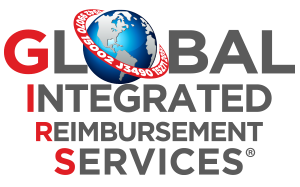As we near the end of this year, we at GIRS are thinking of ways to support our clients better in the next year. We are looking at the major shifts in the market and the challenges those changes will likely bring to the pharmaceutical industry in 2019. We are focusing on three major shifts: the focus on value-based reimbursement, the push for medical innovation, and cost containments as part of a value offering to patients and payers. Those shifts are in direct response to two United States Department of Health and Human Services priorities: bringing down the cost of prescription drugs, and creating a value-based health care system that empowers patients and providers.
Value-Based Reimbursement
The healthcare market, specifically payers, are getting growing pressure from employer groups and the U.S. government to shift the focus of care to increasing access, lowering costs, and improving outcomes, also referred to as value-based care. The conventional fee-for-service (FFS) reimbursement model pays providers retrospectively for services delivered based on billed charges or annual fee schedules. The FFS reimbursement model is slowly being replaced by value-based reimbursement, a reimbursement methodology that ties payments for care delivery to the quality of care provided and encourages healthcare providers to deliver quality care at the most reasonable cost. To address this shift to value-based reimbursement, we are seeing changes in the healthcare market such as:
- Providers moving away from a fee-for-service model to models where they are less inclined to prescribe products — drugs, devices, technology — that do not have a strong impact on health outcomes, and
- Payers paying more on outcomes-based contracts, which are a value-based contract design that ties drug reimbursement rates to actual health outcomes
The main challenge is to show value. To position pharmaceutical products for optimal market adoption and penetration, one must demonstrate value. However, value is not clearly defined and has a different meaning for each stakeholder. While value may mean safety and efficacy for a physician, it may mean evidence-based efficacy and economic benefit for a payer, and market access or penetration for a manufacturer. Over the years, the task of defining value to the different stakeholders will continue to challenge the pharmaceutical industry.
Sources:
• https://www.cms.gov/Medicare/Quality-Initiatives-Patient-Assessment-Instruments/Value-Based-Programs/Value-Based-Programs.html
• https://catalyst.nejm.org/what-is-value-based-healthcare/
Mergers and Acquisitions
The Pharmacy Benefit Managers (PBMs), such as CVS and Express Scripts, own retail and/or mail order pharmacies and provide pharmacy services to consumers. CVS announced plans to buy Aetna late last year. Earlier this year, Cigna announced plans to buy PBM Express Scripts. In September, the Department of Justice cleared Cigna’s acquisition of Express Scripts. The deals combine pharmacy benefit management, pharmacy chains and an insurer into one company, with clout and market penetration fueling drug cost negotiations with manufacturers. These mergers and acquisitions represent a shift in the health care industry as companies try to constrain cost growth and improve health outcomes. This push toward innovation, new delivery systems, and cost containment will continue to challenge the pharmaceutical industry.
Sources:
• https://www.modernhealthcare.com/section/articles?tagID=236&start=25
• https://www.healthcaredive.com/news/cigna-express-scripts-merger-cleared-by-doj/532525/
Significant Changes to the LCD Process
The Centers for Medicare & Medicaid Services (CMS) recently announced changes to the way Medicare Administrative Contractors (MACs) decide which technologies are covered through changes to the local coverage determination (LCD) process. The redesigned local coverage determination process will pave the way for expanded access to new medical technologies. Those changes in coverage decisions are meant to further accelerate medical innovation, improve the quality of care, and lower costs, and these will continue to challenge the pharmaceutical industry.
GIRS is tracking all of these trends and will continue to report on them in the future. If you would like to position your products for market uptake as a result of optimal access by patients and providers and improved coverage by payers based on their value, and if you would like to craft different value propositions for the different stakeholders, the GIRS Value Discovery Landscape Assessment® team can assist you to meet your company goals. The Payer Advocacy Compass® (PAC) team can also assist you to keep track of the significant changes to the LCD process. Please contact us by email or call us at 1-844-514-4477. Also, follow our LinkedIn Company Page for more bi-weekly news on reimbursement trends, milestones, and achievements.
